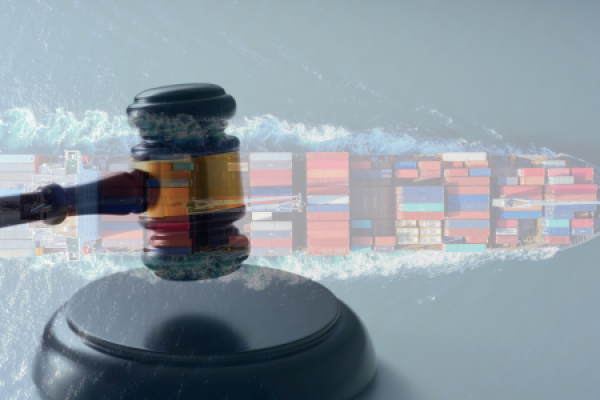
Kalia Nicolaou
Published: May 07, 2025
In The Alion (Tanga Pharmaceuticals Plastics Limited and Others v. Emirates Shipping Line FZE [2025] EWHC 368 (Comm)), the carrier attempted to enforce a shorter time-bar than that provided by Article III.6 of the Hague Rules, which were incorporated into the bill of lading by a clause paramount.
The Commercial Court rejected the carrier's arguments, ruling that in circumstances where the Rules are incorporated by virtue of a 'clause paramount', then the provisions of the Hague Rules take precedence over any other conflicting provisions in the bills of lading.
Background
The claimant had an interest in 548 containers that were shipped aboard the MV Alion to Mombasa in September 2021. The Cargo was transported from India, the UAE, and Saudi Arabia to Mombasa, under bills of lading which were subject to English law and jurisdiction, and which incorporated the Hague Rules via a paramount clause.
On 15 September 2021, the Vessel experienced an engine failure off the coast of Salalah, leading to the declaration of general average by 5 October 2021. This incident resulted in claims by cargo for salvage indemnity and particular average. Although the claims were made within the typical one-year period, as prescribed by the Hague Rules, they were not served for an additional year due to difficulties in effecting service on the carrier in Dubai.
Arguments
The carrier argued that the claimant’s claims were time-barred pursuant to clause 18 of the bill of lading, which -allegedly- prevailed over the Hague Rules. Clause 18 contained the following:
The “20-day Provision”: This required that claims relating to charges, expenses, or matters other than loss or damage to goods be notified and fully documented within 20 days of delivery. Failure to do so would render the claim time barred.
The “Service Provision”: This stated that all claims—including those for loss or damage to goods—would be time-barred unless legal proceedings were brought within one year of delivery. “Brought” was defined as requiring service on the carrier or vessel, or the establishment of jurisdiction, within that time frame.
The carrier argued that, since the Hague Rules were contractually incorporated, the parties were entitled to vary the time limits set out in those Rules. Additionally, it was submitted that the Service Provision did not conflict with Article III Rule 6 of the Hague Rules [requiring “suit is brought within one year after delivery …”], which does not expressly define what constitutes the commencement of proceedings.
The claimant, however, contended that the incorporation of the Hague Rules—particularly Article III Rule 8—meant that any contractual provision limiting the protection of the Rules would be invalid. On that basis, the issuance of a claim form within the one-year period should be sufficient to preserve the claim. The claimant also argued that the 20-day Provision did not apply, as it was intended for claims unrelated to loss or damage to goods, which was not the case here.
Judgement
The Judge, Mr. Justice Bright, ruled that the provisions in question were not intended to override the Hague Rules. He emphasized that clear wording would be required to agree to a time-bar shorter than the one set out in Article III Rule 6, following the principles established in MUR Shipping BV v RTI Ltd [2024] UKSC 18 (See: Force majeure and reasonable endeavours: a turbulent contractual tale). The Judge also noted that the use of the term “clause paramount” to incorporate the Hague Rules indicated that the provisions of clause 18 should not prevail over the anti-repugnancy provision in Article III Rule 8.
The Judge rejected the carrier’s argument that the Service Provision did not engage Article III Rule 8, finding that it would be unreasonable to allow provisions that could potentially invalidate the commencement of a suit under such uncertain conditions.
Lastly, Mr. Justice Bright dismissed the carrier’s claim that the 20-day Provision applied to salvage indemnity claims. He endorsed Sir Nigel Teare’s reasoning in The Thorco Lineage [2023] EWHC 26 (Comm), affirming that a maritime lien constitutes a specific form of damage to the goods in question, rather than simply economic damage to the owner. (See: Economic Loss and Package Limitation)
Conclusion
The case offers valuable guidance for Members considering the inclusion of additional wording in a charterparty. It underscores the importance of ensuring that such wording is clear enough to either override or exclude the Hague Rules incorporated by the paramount clause.


